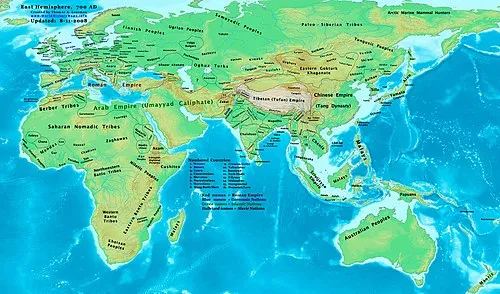
Discovering the Life and Legacy of Wigbert: A Notable Figure in History
Wigbert, a name that often fades in the shadows of prominent historical figures, stands as a testament to the rich tapestry of our past. In this article, we dive deep into the life, contributions, and enduring legacy of Wigbert, exploring his significance during a pivotal time in history.
Who Was Wigbert?
Wigbert was known primarily as a Christian missionary during the 8th century, playing a crucial role in the spread of Christianity across the Germanic tribes. His tireless efforts in evangelization helped to lay the groundwork for what would become a deeply rooted faith in many parts of Europe.
The Historical Context
To understand Wigbert's impact, it is essential to consider the historical context of the 8th century. Europe was undergoing significant transformation with the rise of the Carolingian Empire and the consolidation of power into the hands of Christian rulers. This was a time when converting pagan tribes to Christianity was viewed as both a religious duty and a means to political power.
Wigbert's Missionary Work
Wigbert's missionary activities were pivotal in establishing numerous ecclesiastical communities. Records indicate he worked closely with Boniface, one of the most celebrated missionaries of the time, further cementing his role in the Christianization efforts. Wigbert’s journeys took him through many regions where he preached, baptized, and established churches, employing a strategy that blended cultural understanding with religious teaching.
Contributions to Monastic Life
One of the most significant aspects of Wigbert's legacy is his influence on monastic life. He was instrumental in establishing monasteries, which became centers of learning and spiritual guidance. These institutions not only fostered religious practices but also preserved knowledge through the dark ages that followed. By promoting literacy and education, Wigbert’s contributions transcended the religious realm, impacting culture and society at large.
Wigbert's Enduring Legacy
Despite the passage of centuries, Wigbert's impact remains evident today. His work laid the foundation for a structured Christian community in Europe, facilitating the spread of educational, cultural, and spiritual practices that endures in various forms. Churches and monasteries attributed to his influence still stand as testaments to his life’s work.
Modern Recognition
In contemporary times, Wigbert is recognized within specific contexts, particularly in historical studies focused on early Christianity in Europe. His name may not be as widely recognized as others, but researchers and historians appreciate his significant contributions to the growth of the Christian faith and community among Germanic peoples.
Conclusion
Wigbert’s dedication to his mission, combined with his commitment to education and cultural integration, positions him as an influential figure of the 8th century. As we explore his life and legacy, we uncover a narrative that emphasizes the importance of compassion, understanding, and the unwavering pursuit of faith amidst challenges. Wigbert may not adorn the pages of every textbook, but his enduring impact on history is deserving of recognition.






